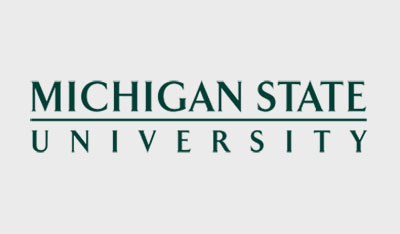Michigan State University Spartans work to advance the common good with uncommon will. Founded in 1855 as the United States’ pioneer Land Grant University, MSU began as a bold experiment that democratized higher education and helped bring science and innovation into everyday life.

Today, Michigan State University (MSU) is one of the top 100 research universities in the world. MSU is internationally recognized for its research, analysis, program design, project implementation, and evaluation. MSU has more than 1,400 faculty engaged in international research, teaching, and engagement in more than 175 countries. More than 7,000 international students and scholars from 133 countries contribute to a diverse student body comprising 38,996 undergraduate and 11,023 graduate and professional students. MSU ranks #10 in the U.S. for education abroad participation and #16 for international student enrollment.
MSU's Dean of International Studies and Programs (ISP) integrates the work of more than 30 internationally focused centers, institutes, and programs. ISP efforts focus on 4 key thematic areas where MSU has longstanding, recognized strength: agriculture and food systems, environmental sustainability, health and nutrition, and education. MSU has the nation's top-ranked graduate programs in elementary and secondary education (for 23 straight years), supply chain management, African history, nuclear physics, organizational psychology, rehabilitation counseling, and supply chain management. Its programs rank in the top 30 in the world in plant and animal science (#9), agricultural sciences (#17), economics and business at (#26), and environment/ecology (#30).
University research strengths/areas of expertise related to activities in Consortium
The MSU College of Agriculture and Natural Resources (CANR) has a long and distinguished history of international research and applied projects; over half of its 450 faculty have participated in international projects related to agriculture, natural resources, capacity building, and rural development. MSU's expertise in food and agribusiness includes top-ranked programs in Crop and Soil Sciences, Horticulture, Animal Science, Packaging, Agricultural Economics, Supply Chain Management, Plant Science, Biotechnology, and Plant Breeding.
The Center for the Advanced Study of International Development links faculty from agriculture and natural resource fields to social scientists to address the social dimensions of agricultural or environmental transformations. The Center for Gender in Global Context is nationally recognized for its Gender, Development, and Globalization program, which promotes teaching, research, and outreach on international development and global transformation as they affect and are affected by women and gender relations.
MSU's new Youth Empowerment Program leverages MSU expertise to identify and scale new opportunities for youth education, entrepreneurship and empowerment initiatives, targeting out of school youth for training in addition to addressing the needs of youth in school settings.
Coordinating Council Member
Team Leader, Director, Center for Latin American & Caribbean Studies; Associate Professor, Anthropology - Laurie's research integrates issues in economic development, environmentalism, and indigenous rights.


